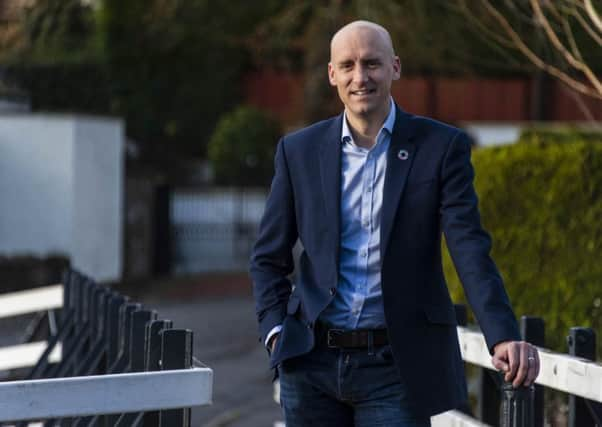Alan Thornburrow: responsible business no longer optional but essential


The UN’s Sustainable Development (Global) Goals are the most important shared roadmap that we’ve ever had. Business understands this challenge, as do investors. A recent PwC report shows that 72 per cent of companies mention the Global Goals in their annual corporate or sustainability report. To achieve these goals, however, businesses must embrace and embed commitment at the core of the business – as we at Business in the Community have done.
The Global Goals sit at the very heart of our work in Scotland – ensuring fair work for the country’s employees; building a business culture where diversity of thought and experience are welcomed and contributing to lifelong education and skills development which equips workers for the challenges of a modern economy throughout their working lives.
Advertisement
Hide AdAdvertisement
Hide AdAll of this will be for naught, however, unless we can start living within our planetary boundaries very quickly. At our Waste to Wealth Summit on 22 November, 2018, HRH The Prince of Wales said: “WWF UK, of which I am a very proud president, summed things up rather well recently when it reported that we are the first generation to know that we are destroying the world, and the last that can do anything about it.”
And the Intergovernmental Panel on Climate Change concurs regarding the magnitude and urgency of the issue.
So how do we respond? In the words of Prince Charles: “We have become very good at making things – now we have to get much better at un-making and re-making them.
“And to assist that process we have to find ways of giving what we unhelpfully refer to as “waste” a proper value – we have to monetise it.”
Business in the Community’s challenge to industry is that we double our resource productivity, which will require us to harness the innovation and creativity of our businesses.
And those same attributes of innovation and creativity will be vital in solving another pressing problem for Scotland. Poverty is not something that happens to other people, somewhere else. Poverty is happening now, here in Scotland. In one of the richest countries in the world one in five of our children is growing up in poverty and this is not right.
We need to ensure that those in work are rewarded fairly and can support the basic needs of themselves and their families. That’s why we have been working with the Scottish Government on a National Action Plan for Fair Work.
Today’s Scotland is culturally rich, and full of people who can strengthen the performance of businesses through their knowledge, experience, skills and perspectives. But this potential has yet to be fully realised.
Advertisement
Hide AdAdvertisement
Hide AdTake gender equality, for example. In a recent survey of more than 1,000 Scottish employees, Business in the Community found that 88 per cent of Scottish men think that they should be as involved as women in caring for children, yet women are still eight times as likely to take the main caring role. Meanwhile, women continue to be underrepresented in leadership positions within many organisations.
Increasingly, businesses recognise that mental health is an issue and strive to provide an environment that makes work safe and fulfilling. Yet this October our research in Scotland showed that 59 per cent of Scottish employees have experienced mental health issues due to work or where work was a related factor – so there is more to do.
Our economy is evolving, our population is both aging and shrinking and the impact of AI brings opportunities and challenges, so now is the time to make sure we are creating an equal society.
And yet I am really encouraged by the fact that Scotland as a nation is progressive in what it wants to achieve. Every organisation I speak to – be it a business, social enterprise or public-sector body – is facing in the same direction. There may be some differences of dialect but we speak the same language, and the outcomes we seek are the same. A gathering of public, private and third sectors, crucially with communities at the forefront, restoring voice and agency, will enable Scotland to thrive.
We now see genuine collaboration, much deeper than simple partnership, in communities across Scotland. And this is the only way that we will achieve the Global Goals in Scotland. Bringing the combined resources of business, community and government together builds on innate strength and diversity. This will create good jobs, build community assets, include those who have been previously marginalised and keep wealth in local economies, invested where it’s needed.
I am impatient for change. We cannot merely to talk a good game about inclusive economies and sustainability. We must all deliver on this promise, and now. All of these issues become very real when applied to the places and spaces in which we live and work, and which we care about. A human connection and a vested interest in a place – be it our local high streets or our planet as a whole – create the need for urgent change and fuel our determination to go further, faster.
This article appeared in the Winter 2018 edition of Vision Scotland. A digital version can be found here.